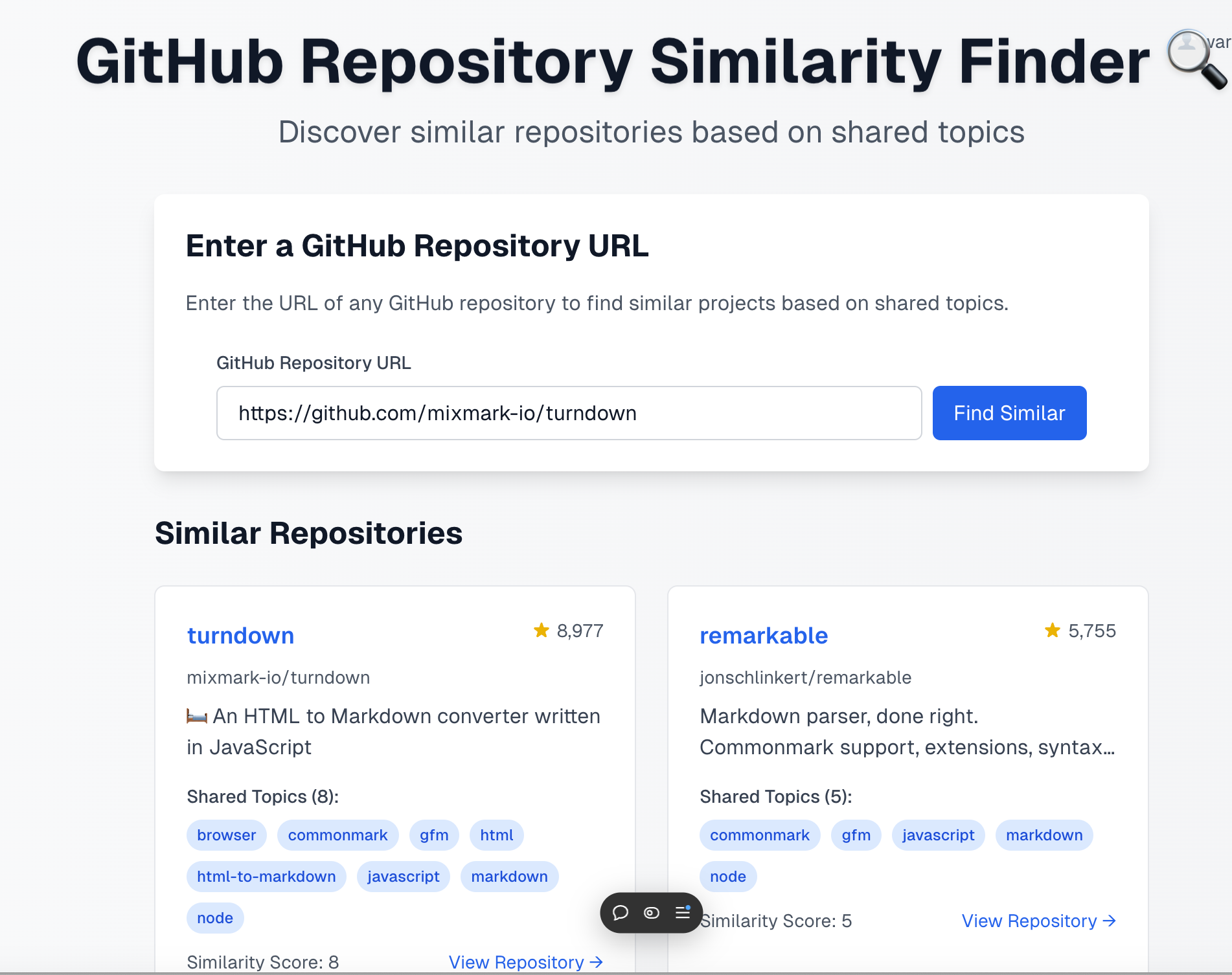Finding Similar Projects on GitHub
Tired of sifting through GitHub for the right tools? Discover how similargit simplifies your search by matching repositories based on shared tags. This efficient approach highlights relevant alternatives quickly, cutting through noise and focusing on developer-defined functionality. Explore new p...

We've all been there: stuck searching for the right library or tool on GitHub. Sure, you can browse recommendations or delve into "similar projects" sections, but those often rely on complex algorithms, analyzing likes, stars, and code similarities. The problem? They can take forever to run and often miss the mark, surfacing projects that are only superficially related. So I thought, why not try something simpler? Most GitHub repositories already have tags describing their functionality. What if we could leverage those to find truly similar projects? That's the idea behind similargit.
How It Works: The Power of Shared Tags
The concept is straightforward: we match repositories that share the same tags (topics). The more shared tags, the more similar the repositories are likely to be. It's a simple metric, but it cuts through the noise and focuses on how developers themselves categorize their projects.
Real-World Example: Finding Markdown Conversion Alternatives
Let’s say you're using the [turndown] https://github.com/mixmark-io/turndown library to convert HTML to Markdown, but you want to explore other options. Here's how our tool helps:

turndown is tagged with:
- browser
- commonmark
- gfm
- html
- html-to-markdown
- javascript
- markdown
- node
Using our tool, we find these related repositories:
- remarkable: Another Markdown parser, also supporting CommonMark.
- html2md: A lightweight library focused specifically on HTML to Markdown conversion.
- breakdance: A different approach to HTML-Markdown conversion, potentially offering different features or performance.
These projects all share a significant number of tags with turndown, indicating they address similar needs. This doesn't guarantee they're perfect replacements, but it gives you a solid starting point for comparison.
Benefits of This Approach
- Speed: Matching tags is much faster than analyzing code or social metrics.
- Relevance: Tags often reflect the core functionality of a project, as defined by the developers themselves.
- Simplicity: The concept is easy to understand and the results are easy to interpret.
Limitations to Consider
Of course, no system is perfect. This approach has a few limitations:
- Tag Dependence: It only works if repositories have tags applied.
- Tag Accuracy: The quality of the results depends on how accurately and consistently tags are used.
- Vocabulary Differences: Different projects might use slightly different tags for the same concepts, potentially leading to missed connections.
Despite these limitations, it's a practical and efficient way to broaden your search and discover alternatives you might have overlooked. It's not meant to be the only way to find similar projects, but a valuable addition to your toolkit. Give it a try and see if it helps you uncover some hidden gems on GitHub!




